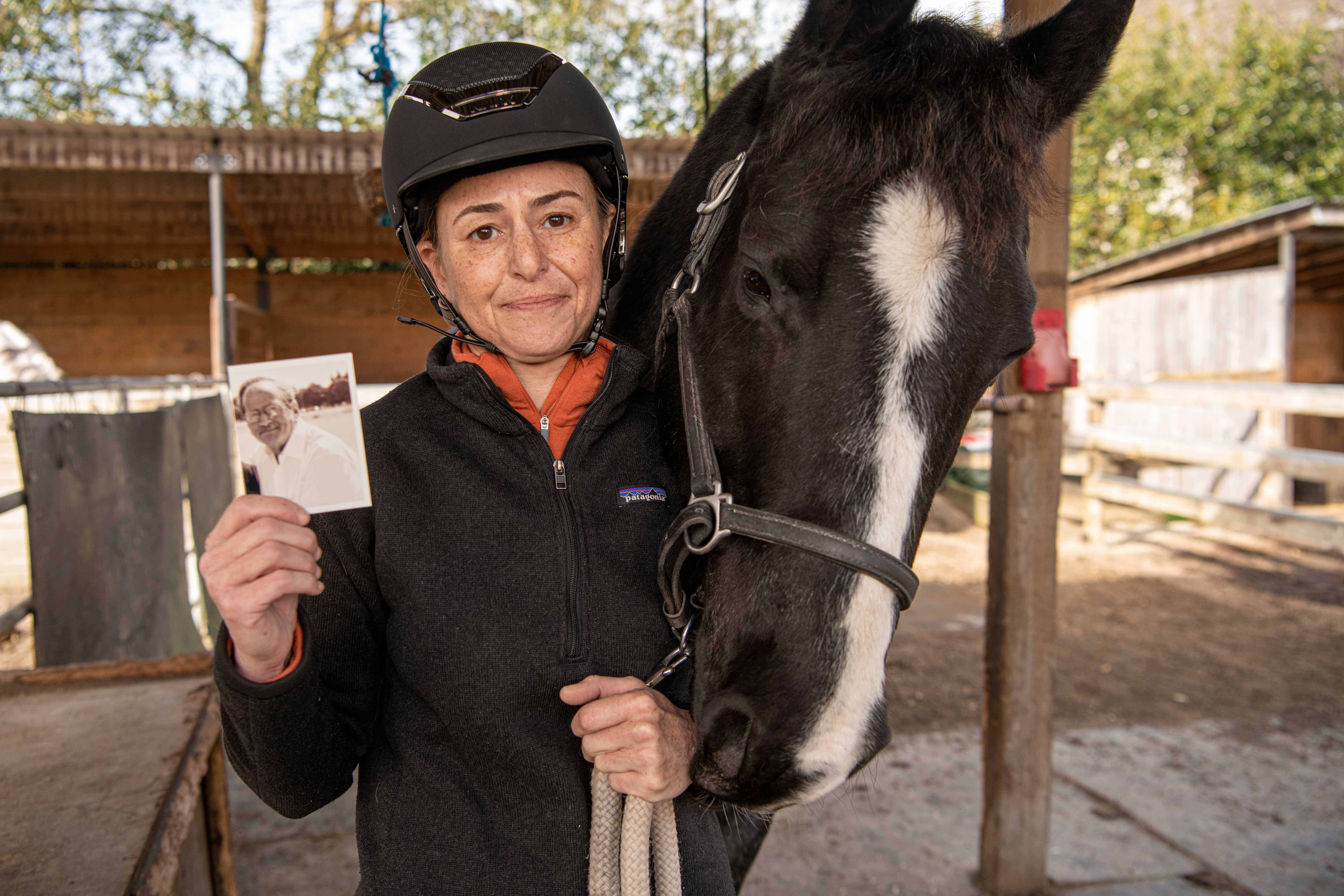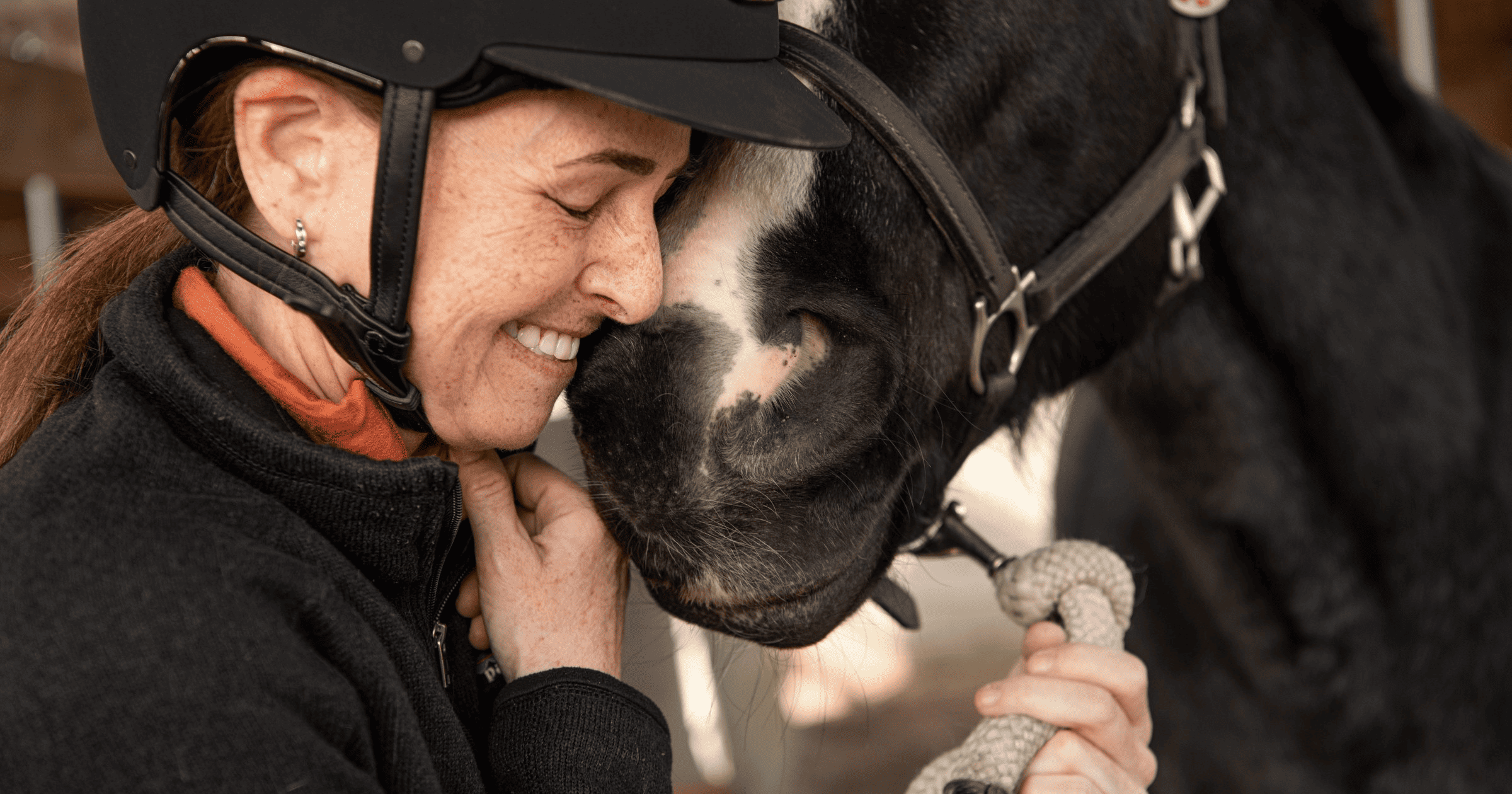“As soon as I walk up to any horse … they know I’m different.”
Elyssa Kaufman has felt “different” all her life. But it takes a highly sensitive creature, like her own horse Blue, to form an unbreakable bond not in spite of, but because of how she’s different.
In fact, when Elyssa is having a bad day coping with her Crohn’s disease, Blue senses it, and reacts with compassion.
“She’ll sniff my abdominal area, and bring her head down to my TPN [Total Parenteral Nutrition] line,” she says, referring to the tube that bypasses the gastrointestinal tract to supply her with nutrition and hydration.
“My problems dissipate when I’m with a horse – you have to focus on the horse.”
Elyssa was diagnosed with Crohn’s disease when she was 13 – a fragile time to suffer from an illness that curtails one’s social life. The chronic pain and complex side effects of Crohn’s disease led to eight surgeries, including an ostomy and re-sections, disrupting her schooling, and athletic and professional pursuits.
“I grew afraid to make commitments. It’s just an emotional roller coaster,” she says.
Over a lifetime, she’s been through the gamut of IBD care, including therapeutic endoscopy, screening for colon cancer and liver diseases, recovery after an ostomy and re-sections, and finally, a TPN program.
She finds her strength in Blue, her partner, her sister, her mother, and in the memory of her father, Bruce Kaufman, a businessman and philanthropist who passed away in 2019, at 77. He also suffered from Crohn’s and acted as a strong guide through his daughter’s health challenges.
“He was my rock,” she recalls of her father. He was also the inspiration behind her own generosity to IBD research and treatment at St. Paul’s.

Elyssa sees a promising future for Crohn’s patients, one in which they can find their various treatments in one place. After years of getting treatment at sites across the city, Elyssa says she’s excited about the prospect of a Digestive Health Centre at the new St. Paul’s Hospital on the Jim Pattison Medical Campus.
“It can be difficult for patients,” she says. “You’re often set off in different directions for your care.”
“I love the idea of a Digestive Health Centre because it’s a one-stop shop. Having IBD care concentrated in one place is going to make a lot of people’s lives easier.”
The Centre would include care for all gastroenterology concerns: IBD, colon cancer screening, colorectal surgery, liver, nutrition counselling, and more. It’s a bold and innovative concept that’s never been done before.
